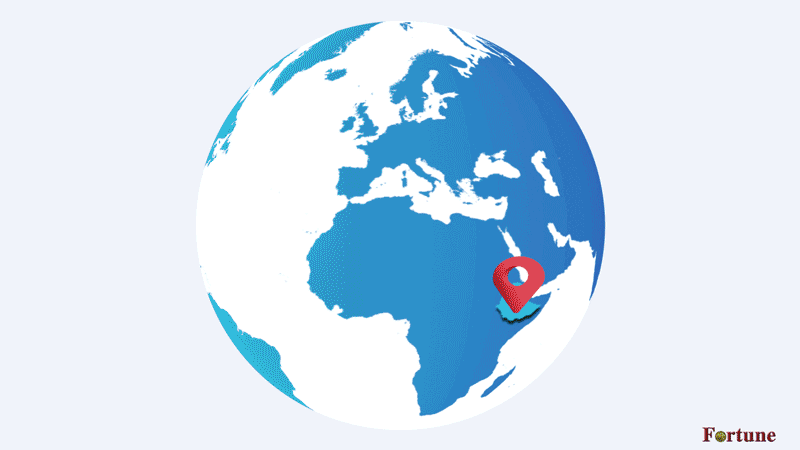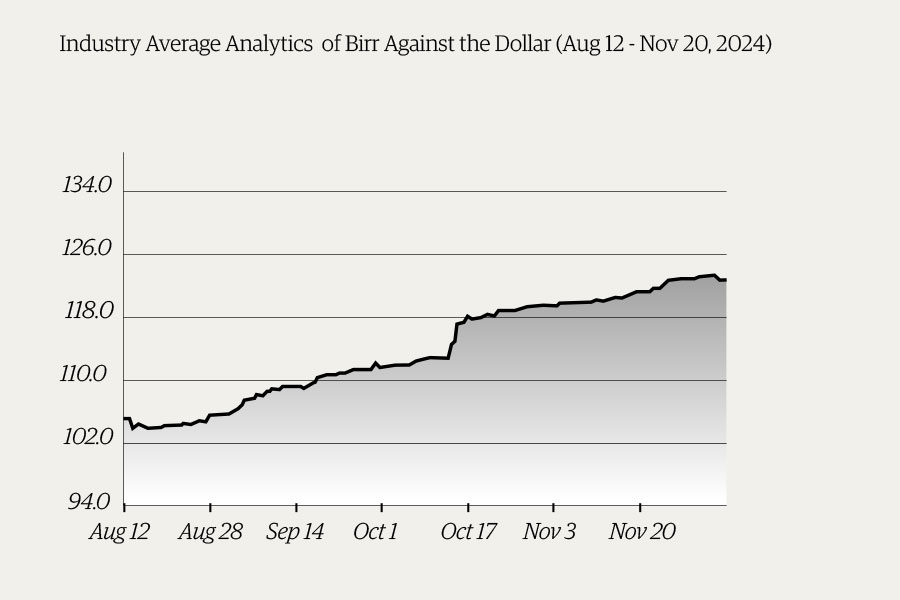
Fortune News | Nov 05,2022
Apr 17 , 2020
If history teaches humankind anything, it is that, as a species, it cannot afford to stand divided. COVID-19 is the latest example of this, writes Hanna Haile (hanna@zellan.art), founder of the Zellan Creative & Cultural Centre.
 Today, what we are fighting is not just a pandemic but an international order in which we are economically and politically disenfranchised.
Today, what we are fighting is not just a pandemic but an international order in which we are economically and politically disenfranchised. Language, studied properly, helps expose much of what is wrong with our world. Take the term “Third World” for instance.
It was originally coined by Alfred Sauvy, a French historian, in the middle of the 20th century to refer to countries that were considered to not be leaning toward either side of the communist or capitalist side of the Cold War.
It merely meant unaligned. Under this classification, the Third World included most of South America and Africa. Ethiopia, because of its Marxist leanings, was considered a Second World country.
In the later years of the second half of the 20th century, the term was co-opted to widely refer to impoverished countries, most of them African. While few have stood against this label – “Global South” seems a more acceptable term - it has lingered. The term Third World paints a picture of despair and poverty.
These distinctions have been an insult to the injury of the centuries of oppression and exploitation that have been perpetrated on African countries. It has been one of the chief reasons that the world is divided and lacking in solidarity across borders and ideologies.
Yet a crisis like the Novel Coronavirus (COVID-19) pandemic is showing us that aiding one another is how we can survive. We are learning that this world is more interconnected than we imagined.
Unfortunately, this is not the first crisis to have occurred, and more often than not, we seem to be taking all the wrong lessons from it. Strangely enough, the crisis seems to confirm an old fear I have always had.
I used to love reading about space exploration. When asked what I would like to become when I grew up, I would boldly say “an astronaut.” As I grew up and grew out of mathematics, I realised the real reason for this was my worry that the powerful few would exploit the world and leave the rest of us behind. I imagined the rich and powerful were all going to move to Mars, leaving us on a ravaged Earth.
The barriers between “us” and “them” have created in our minds a divided psychology. The images of “them” at the top and at the front and “us” at the back and the bottom has been drummed into our psyches. There are images burned into our minds of them stretching out their hands, in pity, to deliver us from the world they have created. This has harmed our view of ourselves.
Today, what we are fighting is not just a pandemic but an international order in which we are economically and politically disenfranchised. It is unfortunate that this lack of solidarity can also be found within ourselves. Forgetting the larger picture, where we are all at the bottom of the future, we also try to cheat one another in order to get ahead in life.
Today, the whole world faces the question: could we instead be working toward a world where we are united, and no one is left behind?
If we ever want to make it to another century in one piece, there is no other way. The alternative, as history testifies, is too unimaginable to consider. In moving forward, we should learn that it is through a united front that we can achieve all things. We can only hope this pandemic does not give way to further isolationism and division between nations.
Unfortunately, now that the United States has cut funding to the World Health Organization in the middle of a pandemic, the signs are not encouraging. At this point, we can only hope that the lesson taken out of this crisis is that nation-states, and not multilateral institutions, are equipped to deal with the problem.
If we can learn anything from history, it is that we cannot afford to divide up the world. A war incited across the ocean will knock at our doors, just like the pandemic.
The human spirit has a survival instinct with resilience embedded deep within. It is up to us to properly nurture this nature of ours.
PUBLISHED ON
Apr 17,2020 [ VOL
21 , NO
1042]


Fortune News | Nov 05,2022

Money Market Watch | Dec 08,2024

Radar | Jun 11,2024

Viewpoints | Apr 06,2024

Fortune News | Oct 24,2020

Sunday with Eden | Mar 13,2021

Viewpoints | Dec 19,2020

Viewpoints | Aug 05,2023

Sunday with Eden | Jul 13,2019

Fortune News | Aug 24,2019

Dec 22 , 2024 . By TIZITA SHEWAFERAW
Charged with transforming colossal state-owned enterprises into modern and competitiv...

Aug 18 , 2024 . By AKSAH ITALO
Although predictable Yonas Zerihun's job in the ride-hailing service is not immune to...

Jul 28 , 2024 . By TIZITA SHEWAFERAW
Unhabitual, perhaps too many, Samuel Gebreyohannes, 38, used to occasionally enjoy a couple of beers at breakfast. However, he recently swit...

Jul 13 , 2024 . By AKSAH ITALO
Investors who rely on tractors, trucks, and field vehicles for commuting, transporting commodities, and f...

Oct 25 , 2025
The regulatory machinery is on overdrive. In only two years, no fewer than 35 new pro...

Oct 18 , 2025
The political establishment, notably the ruling party and its top brass, has become p...

Oct 11 , 2025
Ladislas Farago, a roving Associated Press (AP) correspondent, arrived in Ethiopia in...

Oct 4 , 2025
Eyob Tekalegn (PhD) had been in the Governor's chair for only weeks when, on Septembe...